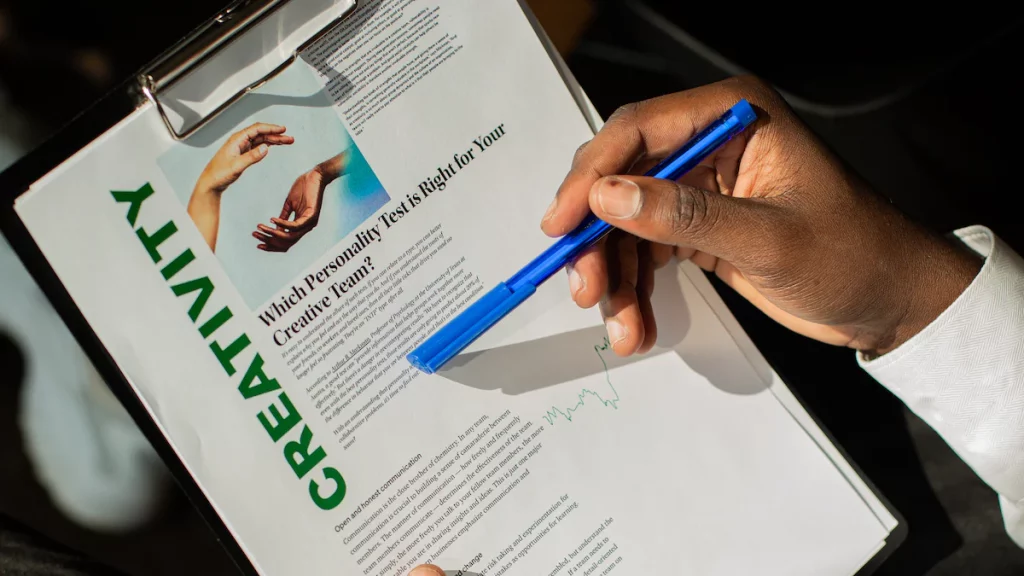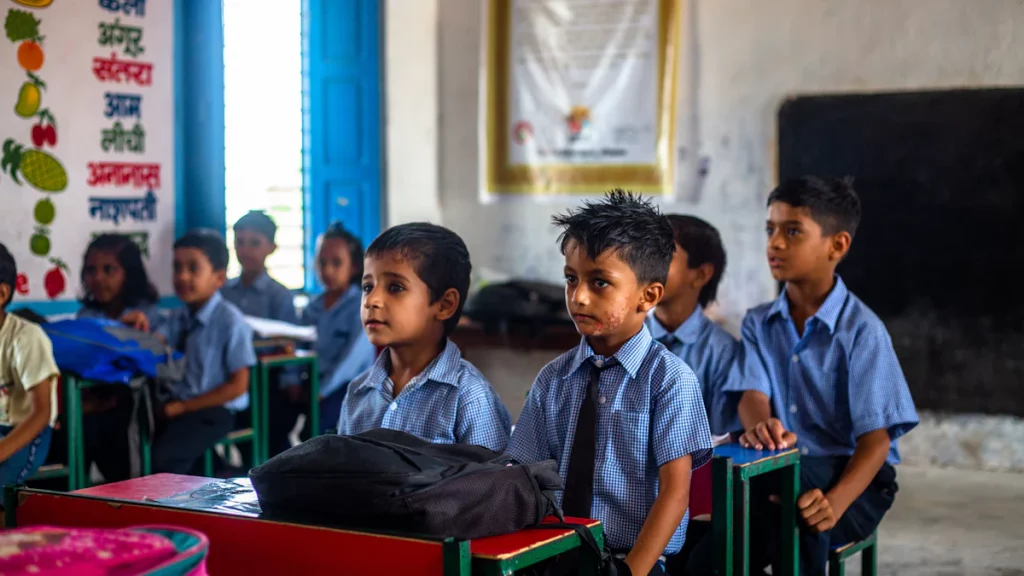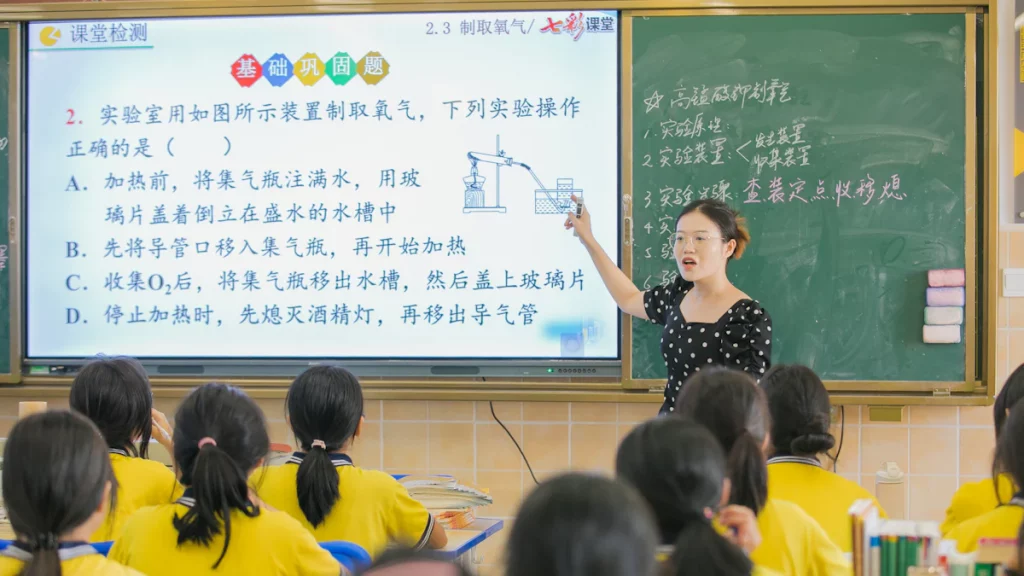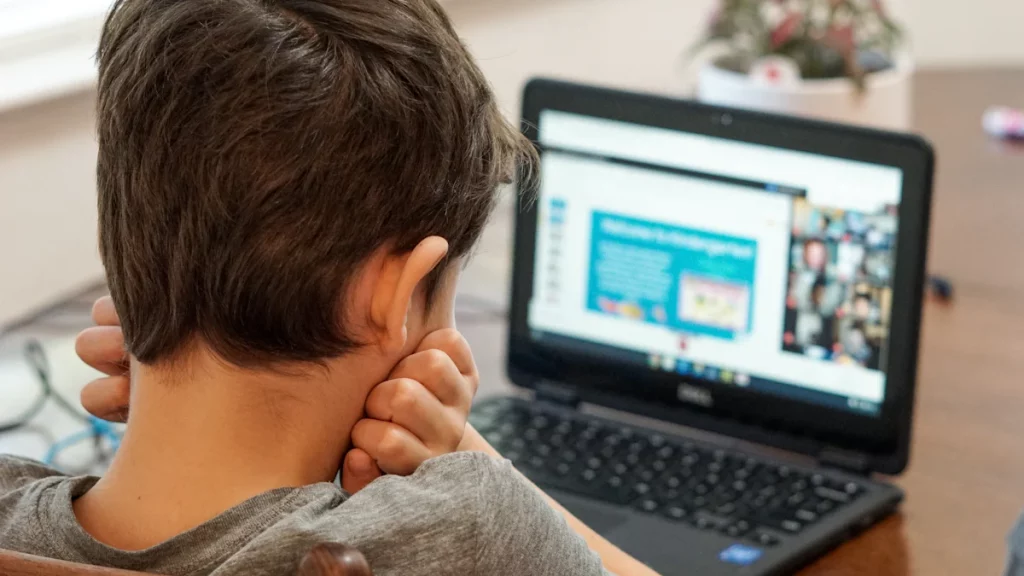Overview of the National Education Policy 2023
The National Education Policy (NEP) 2023 is a landmark reform in the Indian education system, aiming to transform and revitalize the entire educational landscape. It brings about significant changes in higher education, shifting the focus towards flexibility, holistic learning, vocational subjects, and academic credit portability. These reforms are designed to equip students with the necessary skills and knowledge to thrive in a rapidly changing world.
Key Reforms in Higher Education
One of the key aspects of the NEP 2023 is its emphasis on flexibility in higher education. The policy recognizes that students have diverse interests and talents, and therefore offers them multiple pathways to pursue their chosen fields. This allows students to explore various subjects before specializing in a particular discipline, fostering a well-rounded educational experience.
Additionally, the NEP 2023 introduces vocational subjects as an integral part of higher education. This shift acknowledges the importance of practical skills and hands-on learning for employability. By integrating vocational training into mainstream education, students will be better prepared for the job market and have more opportunities for career growth.
Another significant reform outlined by the NEP 2023 is academic credit portability. This means that students will have the freedom to transfer credits earned from one institution to another seamlessly. This not only promotes mobility but also encourages collaboration between institutions and fosters healthy competition among them.
Shift in Education Structure
The NEP 2023 proposes a fundamental shift in the structure of education from a traditional 10 + 2 system to a more comprehensive 5 + 3 + 3 + 4 system. Under this new framework, education is divided into four stages: Foundational (ages 3-8), Preparatory (ages 8-11), Middle (ages 11-14), and Secondary (ages 14-18).
This restructuring aims to provide a strong foundation for children's learning from an early age. By starting education at the age of three, the policy recognizes the importance of early childhood education in cognitive and social development. It also ensures that children receive a solid grounding in literacy and numeracy skills during their foundational years.
The Preparatory stage focuses on building critical thinking abilities and introducing students to a wide range of subjects. This stage prepares them for more specialized learning in the Middle and Secondary stages, where they can choose subjects based on their interests and aptitudes.
Universal Foundational Literacy and Numeracy
One of the primary goals of the NEP 2023 is to achieve universal foundational literacy and numeracy by 2025. To accomplish this, the policy proposes the establishment of a National Mission on Foundational Literacy and Numeracy. This mission will focus on developing effective teaching methods, providing additional support to struggling learners, and ensuring that every child has access to quality education.
Foundational literacy and numeracy are crucial building blocks for future academic success. By prioritizing these skills, the NEP 2023 aims to bridge the existing gaps in educational outcomes across different regions and socio-economic backgrounds. It recognizes that without a strong foundation in these fundamental areas, students may struggle to grasp more complex concepts later on.
Promoting Interdisciplinary and Practical Learning
The NEP 2023 places a strong emphasis on interdisciplinary learning, recognizing that real-world problems often require multidisciplinary approaches. By integrating various subjects such as science, arts, humanities, and vocational studies, students are encouraged to think critically and make connections across different disciplines.
Practical learning experiences are also given significant importance under the new policy. The inclusion of experiential learning opportunities allows students to apply theoretical knowledge in practical settings, fostering creativity, problem-solving skills, and innovation. Furthermore, coding is integrated into the curriculum at an early stage to equip students with essential digital literacy skills necessary for the modern world.
The NEP 2023's focus on interdisciplinary and practical learning not only enhances students' academic abilities but also prepares them for the challenges of the 21st century. It encourages a holistic approach to education that goes beyond rote memorization and promotes a deeper understanding of concepts through hands-on experiences.
Importance of Creative Thinking in NEP 2023
Creative thinking is a vital skill that plays a significant role in the National Education Policy (NEP) 2023. The policy recognizes the importance of nurturing creative thinking abilities among students to enhance their critical thinking skills, foster innovation and problem-solving, and prepare them for the demands of the 21st century.
Enhancing Critical Thinking Skills
The NEP 2023 aims to help students develop a range of cognitive abilities, including creative, analytical, problem-solving, and critical thinking skills. By encouraging students to think critically and creatively, the policy seeks to empower them with the ability to analyze information, evaluate different perspectives, and make informed decisions.
Creative thinking goes beyond rote memorization and encourages students to approach problems from multiple angles. It enables them to think outside the box, explore alternative solutions, and challenge conventional wisdom. By developing these critical thinking skills, students become more independent learners who can navigate complex issues with confidence.
Moreover, digital literacy is also emphasized in the NEP 2023. In today's digital age, creative thinking is crucial for effectively utilizing technology and adapting to new digital tools. Students need to be equipped with the ability to think creatively about how technology can be leveraged for learning and problem-solving.
Fostering Innovation and Problem-Solving
Creativity is closely linked to innovation and problem-solving. The NEP 2023 recognizes that fostering innovation among students is essential for addressing real-world challenges effectively. By encouraging creative thinking processes such as brainstorming ideas, generating novel solutions, and taking risks in a supportive environment, students develop an entrepreneurial mindset.
Innovation requires individuals who can think creatively about existing problems or needs and come up with innovative solutions. Through project-based learning approaches integrated into the curriculum under NEP 2023, students are encouraged to apply their creative thinking skills in practical contexts. This hands-on experience allows them to develop innovative ideas, collaborate with peers, and refine their problem-solving abilities.
By fostering innovation and problem-solving skills, the NEP 2023 aims to prepare students for a future where adaptability and creativity are highly valued. In an ever-evolving world, individuals who can think creatively and find innovative solutions will be better equipped to navigate challenges and seize opportunities.
Preparing Students for the 21st Century
The rapid pace of technological advancements and global changes necessitates a shift in education towards preparing students for the demands of the 21st century. Creative thinking plays a crucial role in equipping students with the skills necessary to thrive in various professional and personal contexts.
In today's interconnected world, creative thinking enables individuals to adapt to new situations, embrace change, and approach problems with flexibility. It encourages them to explore different perspectives, challenge assumptions, and seek innovative solutions. These skills are vital for success in diverse fields such as entrepreneurship, research and development, arts and culture, technology, and more.
Additionally, creative thinking nurtures qualities such as curiosity, imagination, resilience, and self-expression. These attributes contribute not only to academic success but also to personal growth. Students who can think creatively are more likely to become lifelong learners who actively engage with their surroundings and pursue their passions.
The NEP 2023 recognizes that creative thinking is not limited to specific subjects or disciplines but should be integrated into all aspects of education. By incorporating creative thinking across the curriculum through interdisciplinary projects, arts-based activities, design thinking approaches, and collaborative learning experiences, the policy ensures that students have ample opportunities to develop their creative potential.
Inclusive Education and Student Well-being
The National Education Policy (NEP) 2023 recognizes the significance of inclusive education and student well-being in creating a holistic learning environment. By emphasizing a comprehensive approach to education, the policy aims to prioritize the overall well-being of students, including their physical, mental, and emotional health.
Holistic Approach to Education
The NEP 2023 promotes a holistic approach to education that goes beyond academic achievement. It acknowledges that students' well-being is crucial for their overall development and success. The policy recognizes that education should not solely focus on imparting knowledge but also on nurturing students' physical fitness, emotional intelligence, social skills, and ethical values.
By adopting a holistic approach, the NEP 2023 encourages schools to create an environment that supports students' overall growth. This includes providing opportunities for physical activities such as sports and yoga, incorporating mindfulness practices into daily routines, and fostering positive relationships among students and teachers.
Inclusive Education for All
Inclusivity lies at the heart of the NEP 2023. The policy aims to create an educational landscape that caters to the diverse needs of all learners, ensuring equal opportunities and access to quality education. It recognizes that every child is unique and may require different approaches or support systems to thrive academically and personally.
To achieve inclusive education, the NEP 2023 emphasizes the importance of removing barriers that hinder access for marginalized groups such as children with disabilities, those from economically disadvantaged backgrounds, or those belonging to minority communities. The policy calls for targeted interventions such as special educators, assistive technologies, accessible infrastructure, and scholarships to ensure that no child is left behind.
Furthermore, the NEP 2023 encourages schools to celebrate diversity by promoting cultural inclusivity through curricular materials that reflect different perspectives and histories. By embracing diversity in classrooms, students develop empathy, respect for others' differences, and a broader understanding of the world around them.
Promoting Student Well-being
The NEP 2023 recognizes that student well-being is integral to their learning outcomes. The policy extends the mid-day meal scheme to include breakfast, ensuring that students have access to nutritious meals throughout the day. This initiative not only addresses the issue of hunger but also improves concentration, cognitive abilities, and overall health.
Moreover, the NEP 2023 prioritizes students' mental well-being by providing access to counseling services and creating safe spaces for open dialogue about mental health. It acknowledges that addressing mental health concerns is essential for creating a supportive learning environment where students can thrive academically and emotionally.
The policy also encourages schools to incorporate mindfulness practices into daily routines. Mindfulness exercises such as meditation or breathing techniques help reduce stress, improve focus, and enhance emotional regulation. By promoting these practices, the NEP 2023 aims to equip students with valuable tools for managing their emotions and building resilience.
Additionally, the NEP 2023 emphasizes the importance of physical fitness by encouraging regular physical activities and sports in schools. Physical exercise not only improves physical health but also boosts mental well-being by reducing anxiety and depression while enhancing cognitive function.
By prioritizing student well-being through inclusive education practices, nutritious meals, mental health support, mindfulness exercises, and physical fitness programs, the NEP 2023 ensures that students have a conducive environment for learning and personal growth.
Regulation and Equitable Access to Quality Education
The National Education Policy (NEP) 2023 recognizes the importance of regulation and equitable access to quality education in creating a fair and inclusive educational landscape. The policy aims to ensure transparency, accountability, and high-quality standards in higher education while bridging the gaps between urban and rural areas and promoting inclusivity and social justice.
Regulating Higher Education
One of the key objectives of the NEP 2023 is to regulate higher education through the establishment of the Higher Education Commission of India (HECI). The HECI will serve as a regulatory body responsible for overseeing higher education institutions, ensuring that they adhere to prescribed norms, maintain quality standards, and provide transparent governance.
By regulating higher education, the NEP 2023 aims to address issues such as commercialization, lack of accountability, and variations in quality across institutions. The HECI will play a crucial role in setting benchmarks for academic excellence, promoting research culture, fostering innovation, and ensuring that students receive a high-quality education that aligns with global standards.
Transparency and accountability are vital aspects of regulating higher education. The NEP 2023 emphasizes the need for institutions to disclose information regarding faculty qualifications, infrastructure facilities, financial transactions, and student outcomes. This transparency enables students to make informed decisions about their educational choices while holding institutions accountable for delivering on their promises.
Equitable Access to Quality Education
The NEP 2023 places significant emphasis on ensuring equitable access to quality education for all learners. It recognizes that disparities exist between urban and rural areas, as well as among different socio-economic backgrounds. To bridge these gaps, the policy proposes various measures aimed at promoting inclusivity and social justice.
One such measure is the establishment of school complexes in rural areas. These complexes will consist of multiple schools sharing resources such as libraries, laboratories, sports facilities, and specialized teachers. By pooling resources together, the NEP 2023 aims to provide students in rural areas with access to quality education that is on par with their urban counterparts.
The policy also emphasizes the importance of leveraging technology to overcome geographical barriers. It proposes the use of online and digital platforms for delivering educational content, especially in remote areas where physical infrastructure may be limited. This approach ensures that students in underserved regions have access to high-quality teaching materials and resources.
Additionally, the NEP 2023 encourages public-private partnerships to enhance access to quality education. By collaborating with private entities, the government can leverage their expertise and resources to establish schools or upgrade existing infrastructure in underprivileged areas. This collaborative approach helps create a more inclusive educational landscape by providing equal opportunities for all learners.
Furthermore, the policy recognizes the need for scholarships and financial aid programs to support economically disadvantaged students. By offering financial assistance, the NEP 2023 ensures that no student is denied access to education due to financial constraints. These scholarships aim to promote social equity and empower students from marginalized communities by giving them equal opportunities for educational advancement.
Conclusion
The National Education Policy (NEP) 2023 envisions a progressive, flexible, and inclusive educational landscape that prepares students for the demands of the 21st century. By emphasizing creative thinking, the policy aims to nurture critical thinking skills, foster innovation, and promote student well-being, ultimately shaping a generation of learners equipped to thrive in an ever-evolving world.
The NEP 2023 brings about significant reforms in higher education, focusing on flexibility, holistic learning, vocational subjects, and academic credit portability. These reforms aim to provide students with diverse pathways to pursue their interests and develop a well-rounded educational experience. The shift from a traditional 10 + 2 structure to a more comprehensive 5 + 3 + 3 + 4 system ensures a strong foundation for children's learning from an early age.
Universal foundational literacy and numeracy are key priorities of the NEP 2023. The policy recognizes that without a solid foundation in these fundamental skills, students may struggle to grasp more complex concepts later on. By emphasizing interdisciplinary and practical learning experiences, the NEP 2023 promotes critical thinking abilities and equips students with essential digital literacy skills necessary for the modern world.
Creative thinking plays a crucial role in enhancing critical thinking skills among students. By encouraging them to think critically and creatively, the NEP 2023 empowers learners with the ability to analyze information, evaluate different perspectives, and make informed decisions. Creative thinking fosters innovation and problem-solving skills among students, enabling them to tackle real-world challenges effectively.
In an increasingly complex and rapidly changing world, creative thinking is essential for preparing students for the demands of the 21st century. It equips them with adaptability, innovative mindset, and resilience needed to navigate various professional and personal contexts successfully. By promoting interdisciplinary projects, arts-based activities, design thinking approaches, and collaborative learning experiences; the NEP 2023 ensures that students have ample opportunities to develop their creative potential.
The NEP 2023 emphasizes a holistic approach to education, focusing on the overall well-being of students. It recognizes that education should not solely focus on academic achievement but also prioritize physical, mental, and emotional health. By extending the mid-day meal scheme to include breakfast and prioritizing student well-being through counseling services, mindfulness practices, and physical fitness programs; the policy creates an environment where students can thrive academically and personally.
Furthermore, the NEP 2023 aims to ensure equitable access to quality education for all learners. The establishment of the Higher Education Commission of India ensures transparency, accountability, and high-quality standards in higher education institutions. By bridging gaps between urban and rural areas through school complexes, leveraging technology for remote learning, promoting public-private partnerships, and providing scholarships; the policy promotes inclusivity and social justice.




